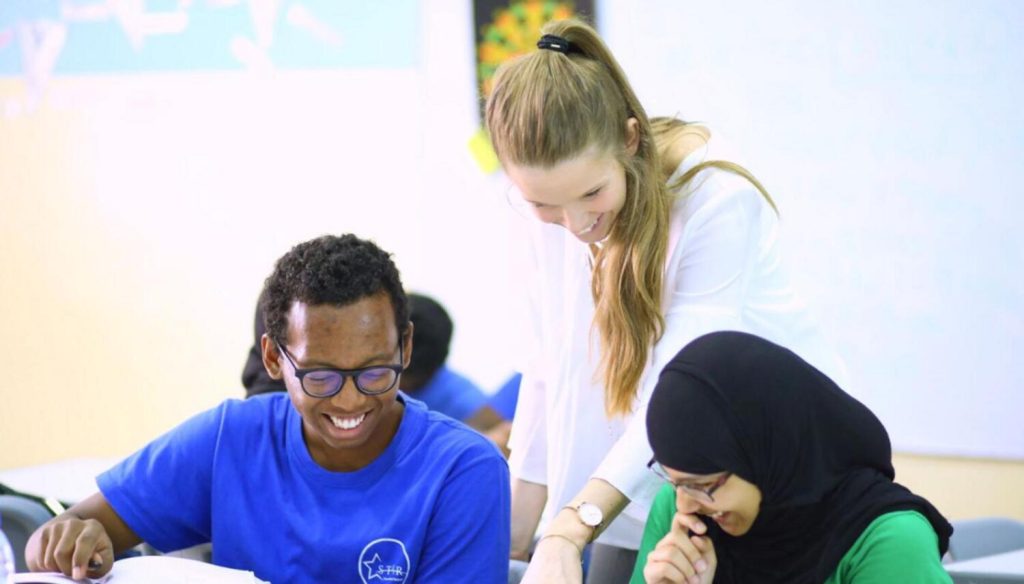In the United Arab Emirates, parents are increasingly finding help from licensed tutors, which has made personalized learning support more accessible and affordable. The introduction of a new permit for private tutoring in December 2023 has expanded access to qualified teachers, allowing parents to choose from a wider range of tutoring options. This change has led to more competitive tuition rates, benefiting families seeking educational support for their children.

The newly introduced permit is available to a variety of individuals, including registered teachers, current employees, unemployed persons, students aged 15 to 18, and university students. This initiative aims to facilitate lessons outside traditional educational institutions, thereby enhancing the options available to parents and students alike.
Dubai resident Arijit Nandi shared his experience, highlighting the challenges of balancing extracurricular activities with the need for tutoring. He stated that his son has been receiving extra help in Arabic from a tutor in Abu Dhabi, as his school grades needed improvement. Nandi emphasized the convenience of online tutoring, which avoids the complications of transportation costs and scheduling. Since the legalization of private tutoring, he noted that more qualified tutors are entering the market, offering lessons at competitive rates, such as Dh60 per hour.
American expat Natalia Miranda also discussed the cost concerns related to private tutoring for her eight-year-old son. After initially being quoted Dh200 per hour for a 45-minute session at a tutorial club, she opted for a term-based package at a different center that costs Dh100 per class. Miranda expressed cautious optimism about the licensing of private tutors, mentioning her reliance on recommendations for future tutoring services. She believes that group tutoring could also be a cost-effective solution, allowing families to share resources and potentially receive discounts.
Sajida Al Bashir, a Jordanian-Palestinian educator with 30 years of experience, praised the UAE’s decision to license private tutors but pointed out the need for transparency regarding pricing. She noted the disparity in fees, where some tutors charge Dh500 per hour while others charge only Dh100, which can depend heavily on a family’s financial situation. Al Bashir, who currently supervises Quality and Assessment at the Ras Al Khaimah Department of Knowledge, stressed the importance of clear policies and security checks in the tutoring industry. She believes that additional support may not be necessary for children who pay attention in class and do not have learning difficulties.

Leave a Reply